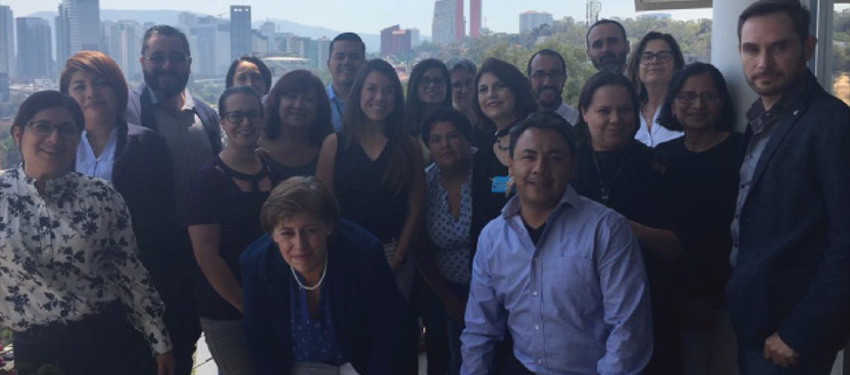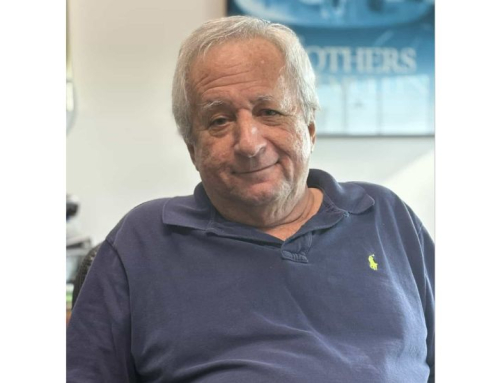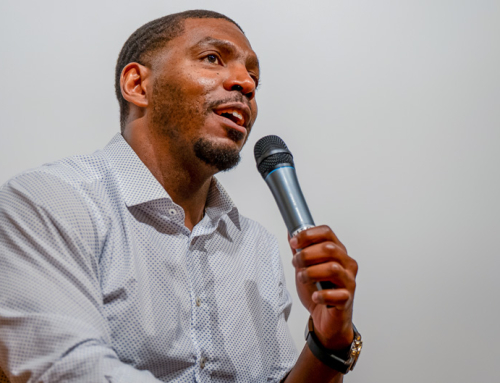Researchers from 11 Mexican and U.S. academic institutions, including the University of Miami School of Communication, have formed the National Journalism Studies Research Network to carry out the third wave of the Worlds of Journalism Study (WJS) in Mexico.
The research network will collect data to better understand and explain the realities of journalism in Mexico and compare Mexican journalists on a global scale through a rigorous administration of WJS-crafted questionnaires.
School of Communication Associate Professor Sallie Hughes serves as a WJS regional coordinator for Latin American and the Caribbean. Hughes touched upon the dangerous landscape Mexican journalists face.
“They are increasingly targeted by criminal elements, by elements in the government, and they can’t always count on the media organizations to support them although there are important exceptions to that rule,” said Hughes. “So that’s why it’s very difficult. It’s among the most dangerous places to be a journalist and they have to navigate the interests of the owners of their media outlets and local politicians, as well as national politicians.”
The University of Miami Institute for Advanced Study of the Americas, where Hughes is the faculty director and senior research area lead for Latin American Studies, organized and sponsored the workshop along with the Journalism Program at Mexico’s Center for Research and Teaching in Economics (CIDE) and the Communication Department of the Iberoamerican University-Mexico City.
During the previous phase of WJS (2012-2015), the groundbreaking international project developed findings about journalistic practices, worldviews, and influences on work through data collected from 27,500 journalists spanning 67 countries, including Mexico.
With anti-press attacks and political targeting of journalists spreading internationally, including in the US, the physical and psychological risks to journalists as human beings and members of an important societal institution will be at the forefront of the third phase of research.
“Everybody is interested in risk and resiliency these days. Since we have been working on these issues for several years now, researchers who focus on Mexico, as well as journalism elsewhere in Latin America, can have a real impact in the development of the third round global study framework,” said Hughes. “That’s going to be one of the areas where we can take the lead and help advance the state of knowledge. The Global South can help the Global North understand these phenomena. Another focus will be digitalization and, perhaps, labor flexibilization. These were really just starting, especially in the Global South, when the second round survey questionnaire was developed in 2012.”
Following the Mexico network formation, WJS team leaders from 15 Latin American and Caribbean countries are headed to the University of Miami Institute for Advanced Study of the Americas from May 22-23 to coordinate regional efforts for the project’s third round from 2020-2022, the largest such gathering ever. Academics who live in or are deeply engaged in the study of journalism in the following countries have confirmed their participation: Argentina, Bolivia, Brazil, Chile, Colombia, Costa Rica, Cuba, Ecuador, El Salvador, Guatemala, Mexico, Paraguay, Peru, Puerto Rico, Venezuela, and Uruguay
Study teams will begin entering the field in January 2020, advancing WJS’ unprecedented collaborative effort.
Those looking to enhance their understanding of the global diversities of journalism can keep up-to-date on the WJS website. Micro data from the second phase of the study should be open for public use in July.






